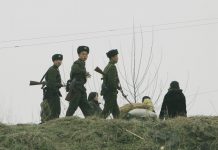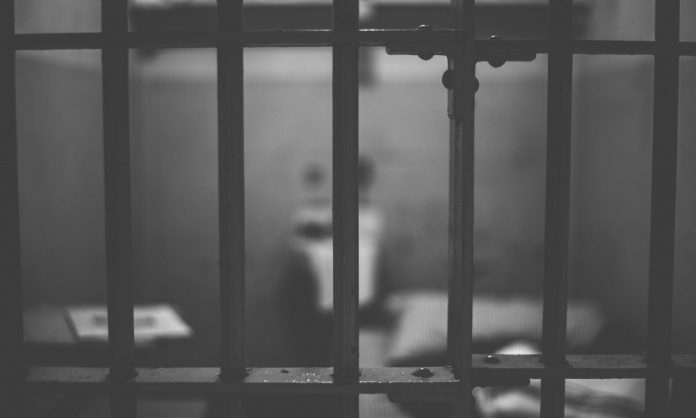Inmates at North Korean prisons are still dealing with poor food and housing conditions, Daily NK has learned.
“The prison population is being supplied with food according to regulations,” a source in North Korea told Daily NK on Wednesday, speaking on condition of anonymity for security reasons. “Regulations state that inmates are to receive three meals for a combined total of 450 grams. They are given bowls of rice measuring 150 grams at each meal.”
In a 2021 report (in Korean), Daily NK quoted a source as saying that the daily supply of food for prisoners as mandated by the North Korean authorities was 450 grams of multigrain rice. It appears that North Korea’s regulations on prison food have not changed over the past three years.
Since a typical 210-gram bowl of rice contains 300 calories, 450 grams of rice would contain 640 calories. Assuming that prison inmates eat all their allotted rice, they are getting less than half of the recommended daily caloric intake for adults of 2,000 to 2,500 calories.
“Prisoners are also provided some thin soup that contains very little salt. While it’s not required, the prison sections and crews are also given a snack once a day,” the source said.
The typical prison snack, provided between meals, consists of some corn flour mixed in with vegetables or leafy greens.
“There are also separate regulations in the prison for people in each section who have received ‘speed battle powder’ [a concoction of corn flour and sugar] from visitors. They also get to eat at a designated location once every few days or once a week,” the source said.
Rule 22 of the U.N. Standard Minimum Rules for the Treatment of Prisoners (also known as the Nelson Mandela Rules) states that “every prisoner shall be provided by the prison administration at the usual hours with food of nutritional value adequate for health and strength, of wholesome quality and well prepared and served.”
However, inmates at North Korean prisons are not being given decent food, jeopardizing their right to food.
“Punishing or rewarding prisoners with food, and no visitation if quotas are not met”
In addition, their living and sleeping quarters are also of poor quality, Daily NK was told.
“Prisoners are either housed with their crews or with separate teams from the crews. A prison crew can run from six to 60 people. When it’s time to sleep, they line up by crew or team for roll call and then sleep in rows inside their cells,” the source said.
“There’s not much space inside the cells for each crew, so inmates sleep very close together, with one person’s feet brushing against another’s head,” the source added.
A Daily NK report (in Korean) from 2021 quoted a source as saying that North Korea had enlarged the cells at some correctional facilities as part of an apparent effort to increase holding capacity. But amid a climate of tougher enforcement and punishment in a harshly controlled society, North Korea’s prisons still do not have enough room for their prisoners.
“During sleeping hours, pairs of prisoners take turns standing in the middle of the cell for two hours. When the prison guards make their nightly rounds, the pair on duty are supposed to stand at attention and report that the crew is asleep and all is well,” the source said.
Prisoners are required to follow the military practice of maintaining a night watch.
The source added that inmates do not have access to decent medical treatment or prescription drugs and that when a death occurs in prison, the inmate’s body is not sent to family members.
“While there is a doctor on the prison staff, inmates have to find ways to treat themselves for anything short of a fatal condition. Prisoners generally have to rely on their visitors for the medication they need. When they don’t have anyone to visit them, they have to do chores for other inmates who can have their visitors bring in medication on their behalf,” the source said.
“When prisoners die in prison, their bodies are never sent outside of the facility. Instead of being sent to family members, the bodies are disposed of on the premises according to internal protocol,” the source said.
Translated by David Carruth. Edited by Robert Lauler.
Daily NK works with a network of sources living in North Korea, China, and elsewhere. Their identities remain anonymous for security reasons. For more information about Daily NK’s network of reporting partners and information-gathering activities, please visit our FAQ page here.
Please send any comments or questions about this article to dailynkenglish@uni-media.net.


















